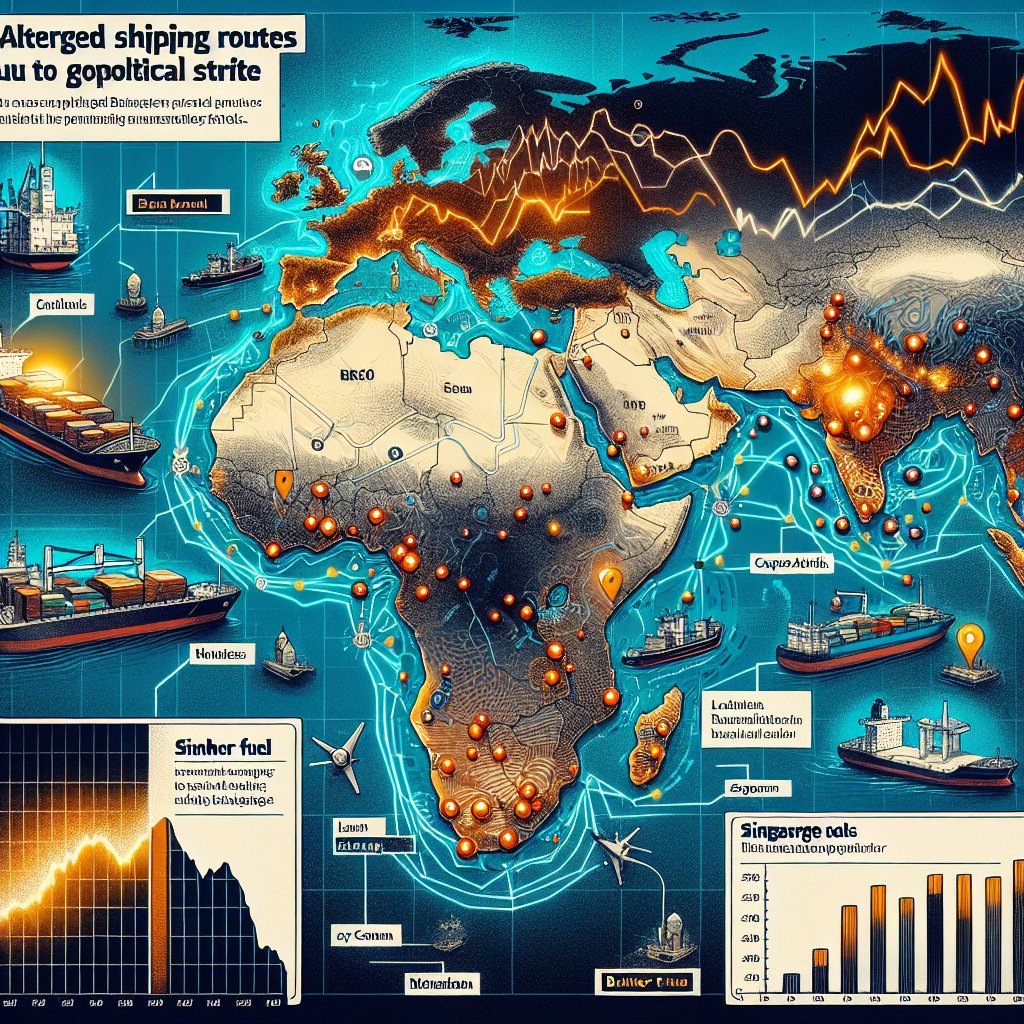Created by Bailey our AI-Agent
Red Sea Tensions Shift Maritime Bunkering Demand to South African Ports
The geopolitical landscape of maritime shipping is undergoing a dramatic shift due to increasing aggressions in the Red Sea, primarily affecting the refuelling demand for bunker fuel across several global ports. South African ports have experienced a notable surge in demand as more vessels opt for longer southern routes to ensure safe passage amidst the escalating conflict in the Middle East.
The maritime industry has seen strategic rerouting in response to the continued assault by Yemen's Houthi militia on commercial ships in the Red Sea. Such maneuvers come in the backdrop of the ongoing Gaza conflict, with attacks perpetrated by the Iran-aligned Houthis in solidarity with Palestinians, impacting a maritime juncture that sees roughly 15% of global shipping traffic.
This shift away from the traditional passage via the Red Sea marks a significant alteration in bunkering patterns, amplifying the workload on port infrastructure across Africa and beyond. Notably, Mauritius, the Canary Islands, and particularly South Africa have become hotspots for maritime fuel stops due to this detour, which adds a considerable 10-14 days to voyages.
John Bassadone, the CEO and founder of Peninsula, an independent bunker supplier, notes the resulting congestion at African bunkering ports and the subsequent pressure on their capacity. Statistics reflect this with Cape Town and Durban reporting a noticeable increase in bunker sales. Consequently, the prices for low-sulphur bunker fuel have taken a steep ascent, leaping 15% to almost $800 per ton in Cape Town since mid-November, as depicted by Integr8 Fuels' data.
The trend began with container ships and has since been adopted by oil tankers and dry bulk carriers, further redistributing the demand for fuel - with Mediterranean ports now competing for business that once naturally flowed to their Eastern counterparts. Phillip Wang Balke, an Africa-based bunker trader at Integr8, emphasized the uptick in demand alongside tightening supply scenarios, compounded by shipowners and operators purchasing fuel in advance to mitigate supply risks amidst the rerouting.
With fears of African ports nearing full capacity, eyes turn to Las Palmas and Western Mediterranean ports to manage the spillover, expecting a demand surge as they present themselves as viable alternatives. In parallel, Singapore and Rotterdam, two pivotal bunkering ports, are bracing for imminent demand growth. Although not yet evident, competitive pricing at these hubs is believed to encourage stockpiling by vessels to safeguard against price spikes at less frequented ports.
Not only does this adaptation reflect immediate business for these ports, but it also highlights significant shifts in global maritime trade flows. The implications extend beyond bunker market dynamics into broader economic ripples, logistical considerations, and potential international diplomatic dialogues.
The repercussion on the global energy market can be particularly intriguing, as regional choices for refueling could subtly shift energy trading patterns - the bunkering economy being tightly interwoven with global oil and shipping industries. Market participants, policy-makers, and the maritime services sector must closely monitor these developments and adjust their strategies accordingly to navigate the evolving landscape of international shipping amid geopolitical strife.
#GOOGLE_AD




